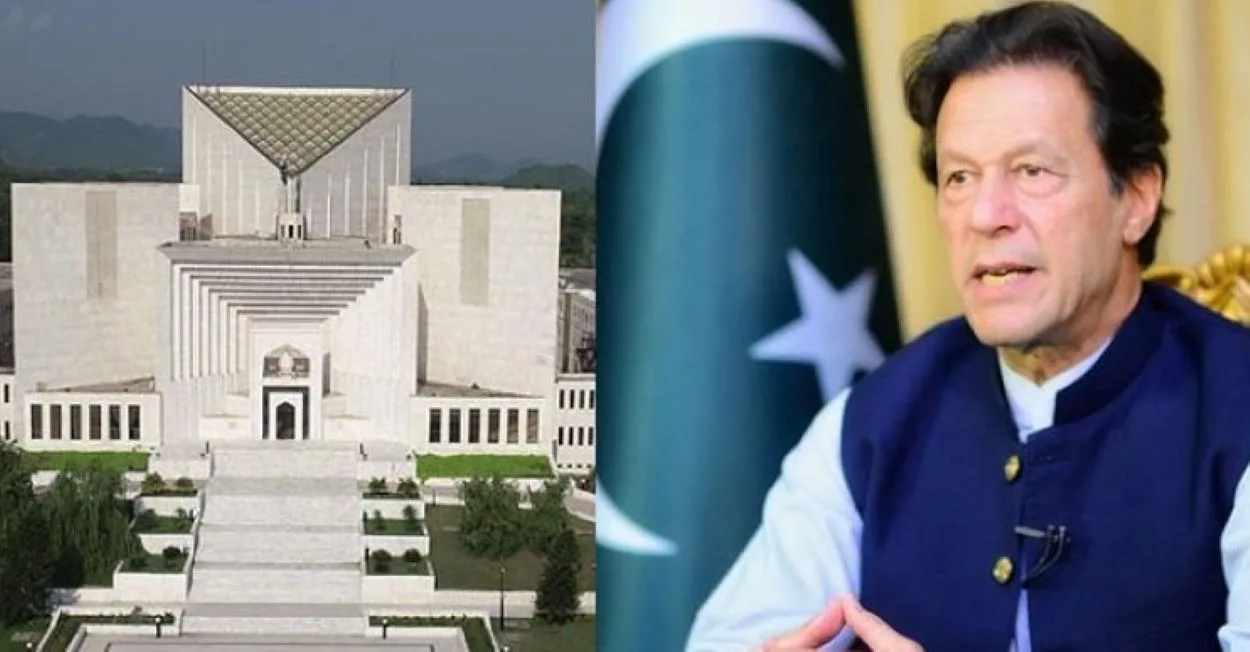The Supreme Court of Pakistan presided over by Chief Justice Umar Ata Bandial, recently held a hearing concerning the controversial Toshakhana case verdict against former Prime Minister and PTI Chairman Imran Khan. The primary contention: the haste with which the trial court judge issued the verdict.
Earlier in August, the Islamabad High Court (IHC) had annulled the session court’s judgment against Khan related to alleged corrupt practices tied to the state gift repository. However, they declined his plea to transfer the case to another court.
Imran Khan’s legal team took immediate action, appealing against the IHC’s decision in the Supreme Court. Khan’s sentencing spurred this move to a three-year prison term over his involvement in the Toshakhana case.
Key Highlights from Today’s Hearing
Khan’s legal representative, Latif Khosa, articulated his concerns during the hearing. The core argument revolved around the hurriedness of the trial court’s judgment. Justice Bandial, acknowledging the rush, questioned the time given to the accused for defence. Notably, the IHC had directed the matter to be resolved in seven days, yet the trial court delivered its verdict in a single day.
Justice Naqvi raised a pivotal point about the trial court contravening the directives of the Supreme Court and the high court, emphasizing that the accused’s right to present witnesses should always be maintained.
The apex court underscored the necessity for fair hearings and transparency in the legal process. It was emphasized that Imran Khan still possesses avenues for addressing his grievances.
With the complexities involved in the Toshakhana case, the Supreme Court advised the high court to contemplate suspending the sentence, noting several significant concerns that demand reconsideration. The subsequent hearing, scheduled for the next day, would assess the IHC’s prior hearings and continue discussions on the Toshakhana case.
In his appeal, Khan has pleaded with the Supreme Court to overturn the high court’s directive, which mandates his reappearance before the Additional Sessions Judge. The petition stresses that the trial court judge rendered the decision on the case’s maintainability “improperly and hastily.” Furthermore, the argument highlights potential biases, questioning how a judge who deemed a case viable could objectively rehear it. The petition also raises concerns about the potential infringement of Khan’s fundamental rights by the IHC’s recent order.






